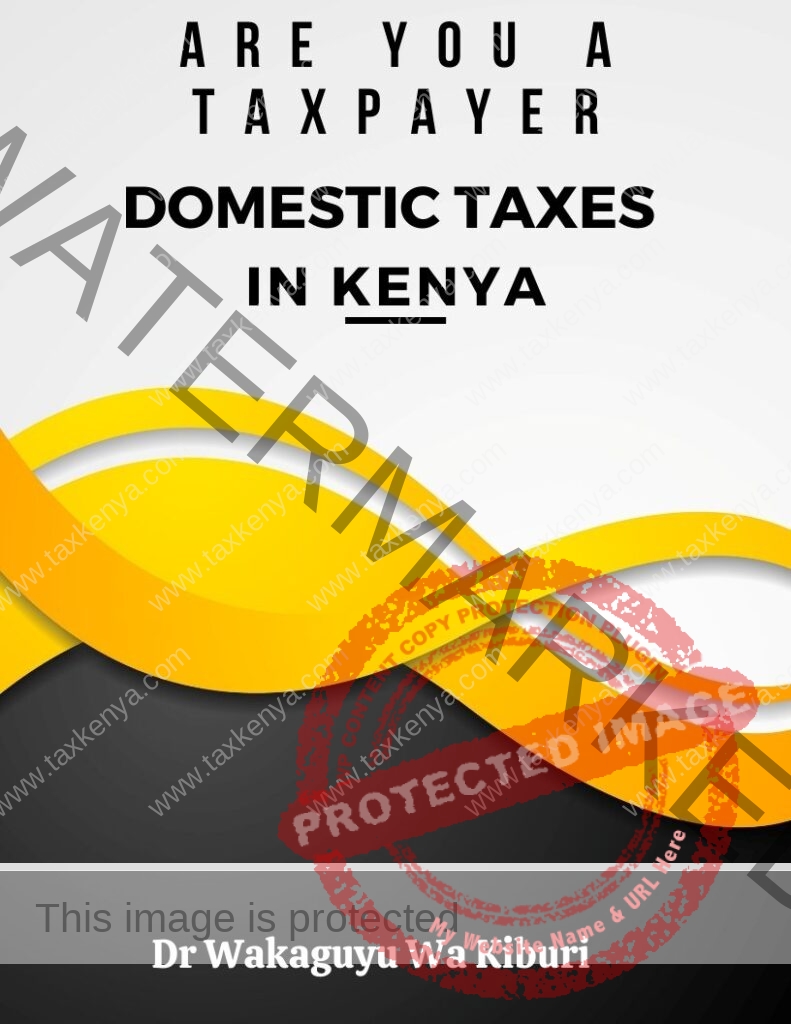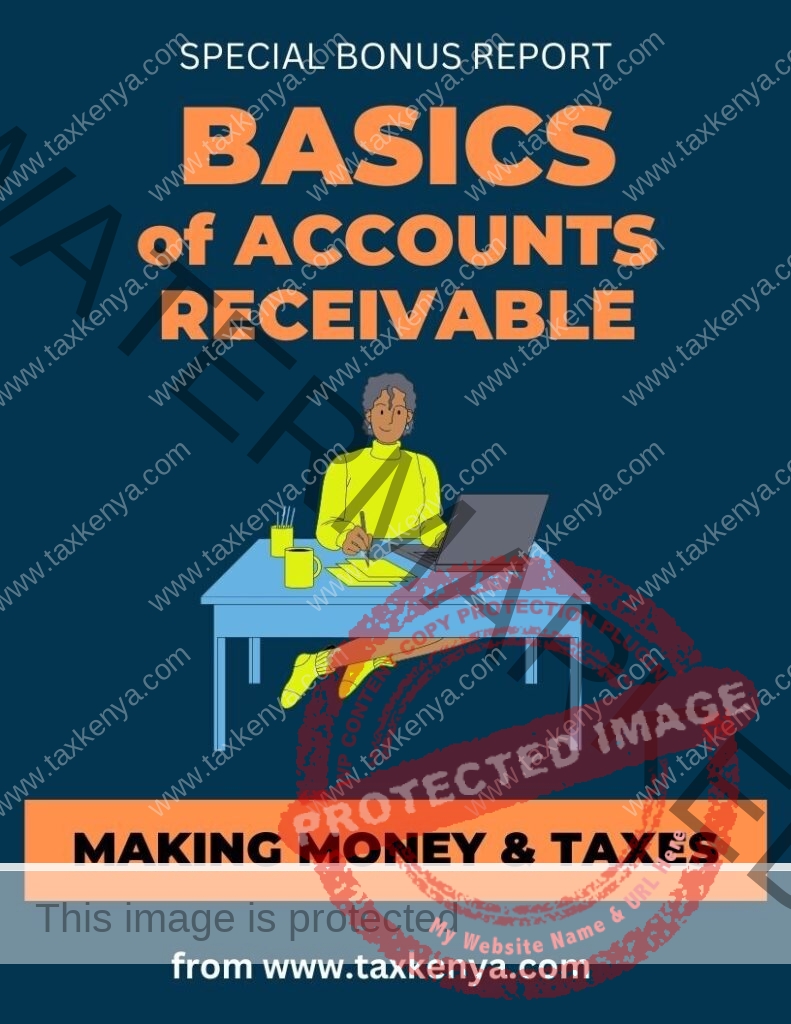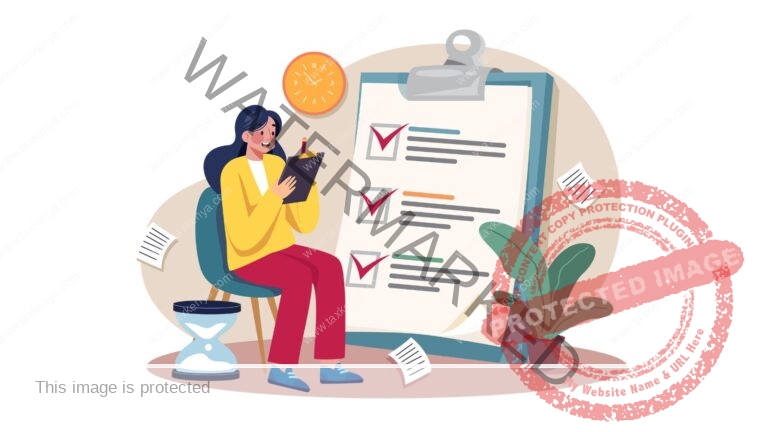Tax invoices are sales documents every VAT-registered taxpayer must legally issue for any taxable sale. Failure to issue tax invoices is non-compliance with the tax requirements and may result in fines, penalties, interest, prosecution in a Court of Law, and possible jail time.
It is important to have information on the features in the tax invoices according to the tax provisions. This post is about the features expected to be contained in any tax invoice.
What is an invoice?
The tax law in Kenya does not define what an invoice is. According to Oxford Dictionary, the dictionary meaning of the term invoice in Google, accessed on August 17, 2020, is
““a commercial document issued by a seller to a buyer, relating to a sale transaction and indicating the products, quantities, and agreed prices for products or services the seller had provided the buyer. Payment terms are usually stated on the invoice.”
Without the definition of an invoice in the Kenyan tax laws, we will adopt the Oxford Dictionary definition.
Tax Implication of Definition
From this definition, any commercial document issued by a seller to a buyer relating to a sale transaction is an invoice. Therefore, for this post, an invoice is any document issued when a sales transaction occurs. This is irrespective of whether the sale is a:
- Credit sales, or
- Cash sale.
Hence, any commercial document issued by a seller to a buyer in a sale transaction, whether indicated as an invoice or a cash sale receipt, should have all the details of an invoice as required by the tax law in Kenya. It is important to note that the tax law is not about the payment mode but the document issued for sale.
Any time a taxpayer in Kenya makes a taxable sale, the commercial document issued is considered an invoice. The implication is that the document should have all details required to be included under the tax law. The detailed features in an invoice for a credit sale and a cash sale receipt for a cash sale must be similar.
Section 42 of the VAT Act (2013)
The legal basis for the requirement to issue a tax invoice is in Section 42 of the VAT Act (2013), which provides for issuing tax invoices for any taxable sales in the country. This Section makes issuing a tax invoice for every taxable sale mandatory.
Therefore, it is not compulsory to issue a tax invoice when a sale is not taxable. A taxable sale under the VAT Act is a sale subject to three VAT rates in Kenya, namely:
- The standard rate of 16%.
- The Zero rate for products listed in the Second Schedule of the VAT Act (2013) or those specifically zero-rated, e.g., through the Kenya Gazette.
- Any other tax rate that may be introduced.
It is not mandatory under this Section to issue a tax invoice for exempt sales.

For illustration only I Source Pixabay
Section 9 in VAT Regulation 2017
The government, through KRA, published VAT Regulations (2017). The Regulations were amended in 2019 under Legal Notice No. 86 of 2019 on Value Added Tax (Amendments) Regulations.
Section 9. (l) and (2) require that a registered person who makes a taxable supply shall furnish the purchaser with a tax invoice. Note that this Section again is about a taxable supply. If the sale is not taxable (vatable), issuing an invoice is not legally required.
Section 9. (l) details the following features to be included in a tax invoice:-
- the words “TAX INVOICE” in a prominent place;
- the name, address, and PIN of the supplier;
- the name, address, and PIN, if any, of the recipient;
- the individualised serial number of the tax invoice;
- the date on which the tax invoice is issued and the date on which the supply was made, if different from the date of issue of the tax invoice,
- the description of the goods supplied, including quantity or volume of services provided;
- the details of any discount allowed at the time of supply; and
- the consideration for the supply and the amount of tax charged.
From this list, cash sales receipts and invoices must contain eight (8) features. What is the practice? Many taxpayers issue cash sale receipts without the required features. For example, petrol stations and shopkeepers do this and are therefore in contravention of the tax law and face the possibility of being charged by KRA.
It is important to note that this Section is for commercial sales documents that are not electronically generated fiscal receipts. Section 9. (2) of the VAT Regulation (2017) details the features expected to be included in an electronically generated fiscal receipt.
The Section requires that a registered person provides an electronically generated fiscal receipt as a simplified tax invoice for cash sales made from retail premises.;- ’The name, address, and PIN of the supplier’.
From this Section. 9. (2) any person issuing electronically generated fiscal receipts should include only the three items required under the tax law, e.g., supermarkets. This means that the VAT input in the simplified tax invoices is claimable against the VAT output.
The practice has been that simplified VAT invoices from supermarkets are not accepted for claiming VAT input, yet it is not against the tax law to issue those documents. Denial to claim input VAT contravenes the tax law under Section 9. (2) of the VAT Regulation (2017).
Key Points:
Ø For tax purposes, the tax law is not about the mode of payment but about issuing commercial sales documents.
Ø All commercial documents for sales transactions, whether for credit or cash, are referred to as invoices.
Ø Invoices and cash sales documents should have all the details provided under Section 9(1) in the VAT Regulation (2017) as long as they are not electronically generated fiscal receipts.
Ø The law requires that the electronically generated fiscal receipts have three KEY items: the supplier’s name, address, and PIN.
Ø Electronically generated fiscal receipts are legal documents for purposes of claiming VAT input.
Ø The use of ETR is a requirement.
Ø Taxpayers are charged for not issuing tax invoices.
Exercise:
- Pick one of your cash sales documents (where applicable) and list all its features. Compare your list with the required details in Sections 9 (2&1) of the VAT Regulation (2017).
- Pick one of your invoices (where applicable) and list all its features. Compare your list with the required details in Sections 9 (2&1) of the VAT Regulation (2017).
What you need to do:
As a taxpayer, you need to do the following:
- Ensure that your cash sale documents have all the features outlined under Sections 9 (2&1) of the VAT Regulation (2017).
- Ensure your invoices have all the features outlined under Sections 9 (2&1) of the VAT Regulation (2017).
- Comply with the tax law requirements to avoid paying extra taxes in the form of fines, penalties and interest.
This post was on what are tax invoices. We trust you have learnt something.
Thank you for reading the post.
Dr. Wakaguyu wa-Kiburi









